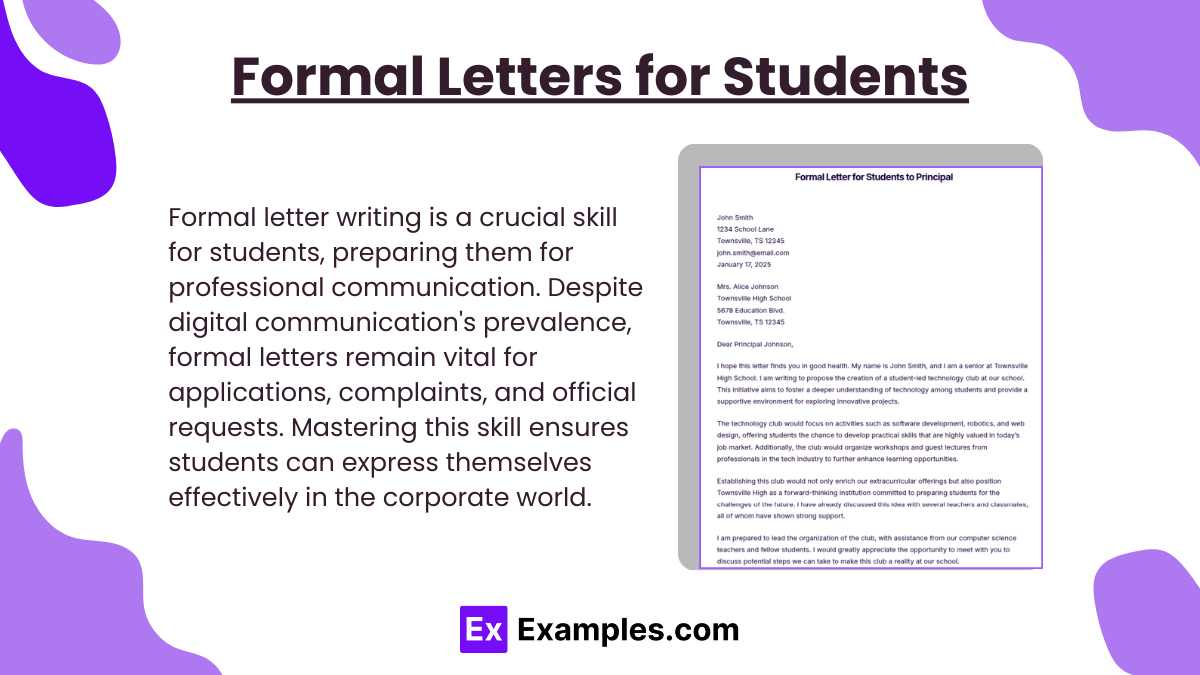9+ Formal Letters For Students Examples to Download
Formal letter example for students is an essential skill that can help them in the real, corporate world. It is important that students would learn formal letter writing while they are still studying because it will definitely help them in the future when they would already be working. Even if there is less use of letters in the advent of the internet, formal letters are still able to hold so much importance that never wavers. You may also see business reference letter examples
There will be a lot of instance in our lives that we would be needing to write a formal letter. Formal letters are still needed when we would like to obtain an information, when we are to apply for a scholarship, internship, job or service, when we are to complain about the product or service we have availed, or simply when we are to express our opinion in a professional manner or when we meant business. You may also like complaint letter examples & samples.
What is Formal Letter For Students?
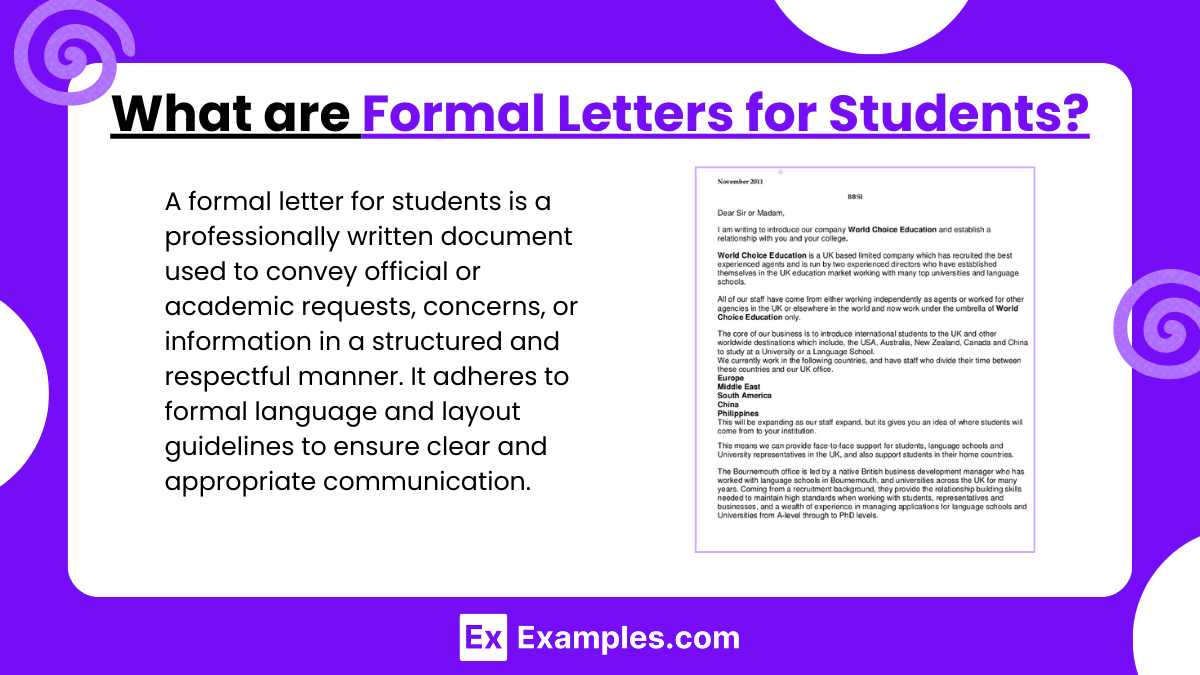
Formal Letters for Students Examples
Formal Letter for Students to Principal
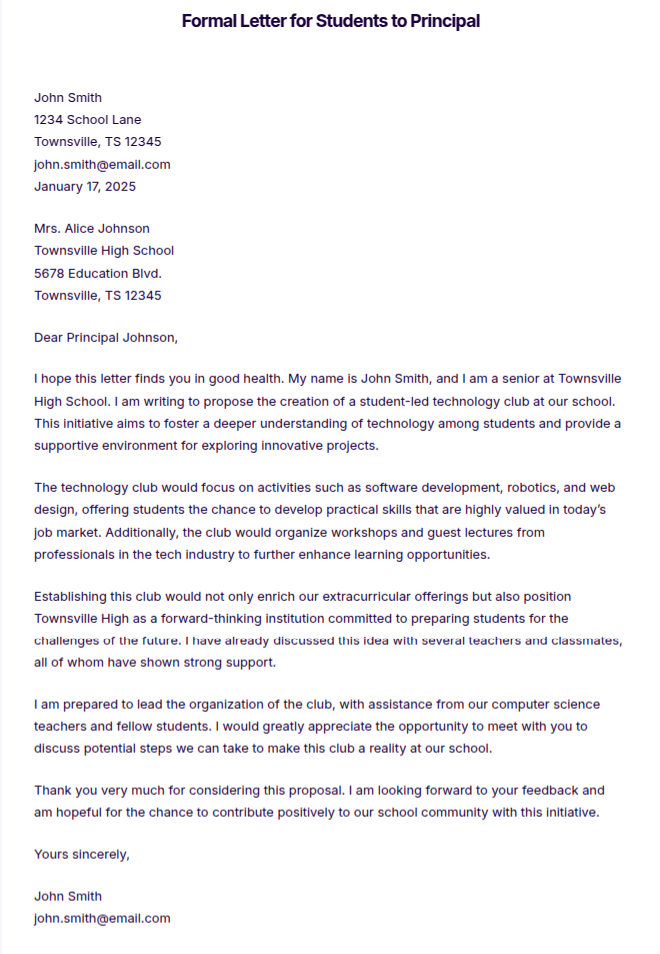
Formal Letter for Students Transfer to Another School
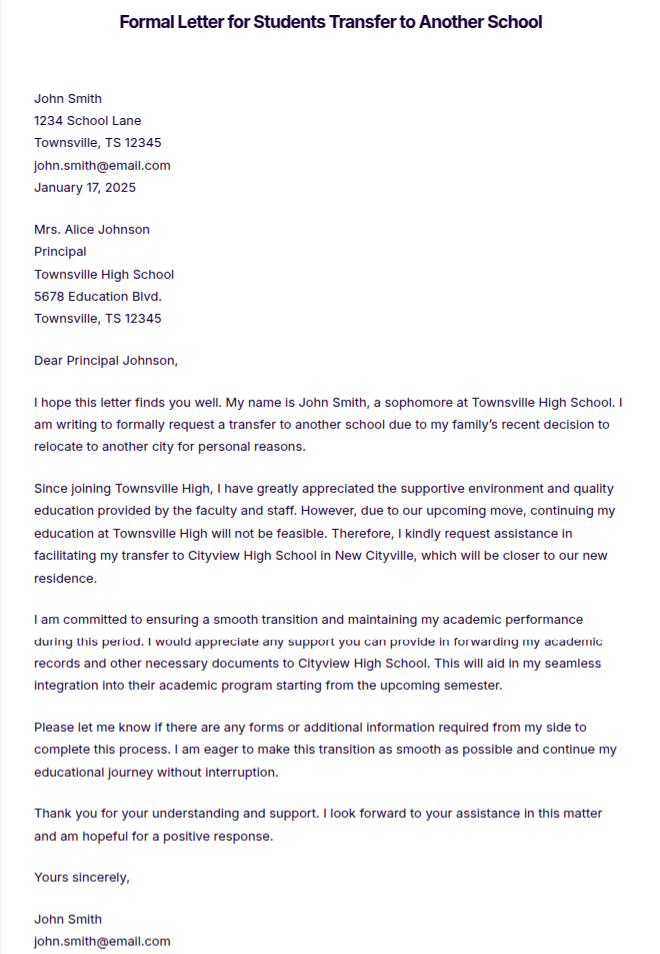
Formal Letter for Students to Teacher
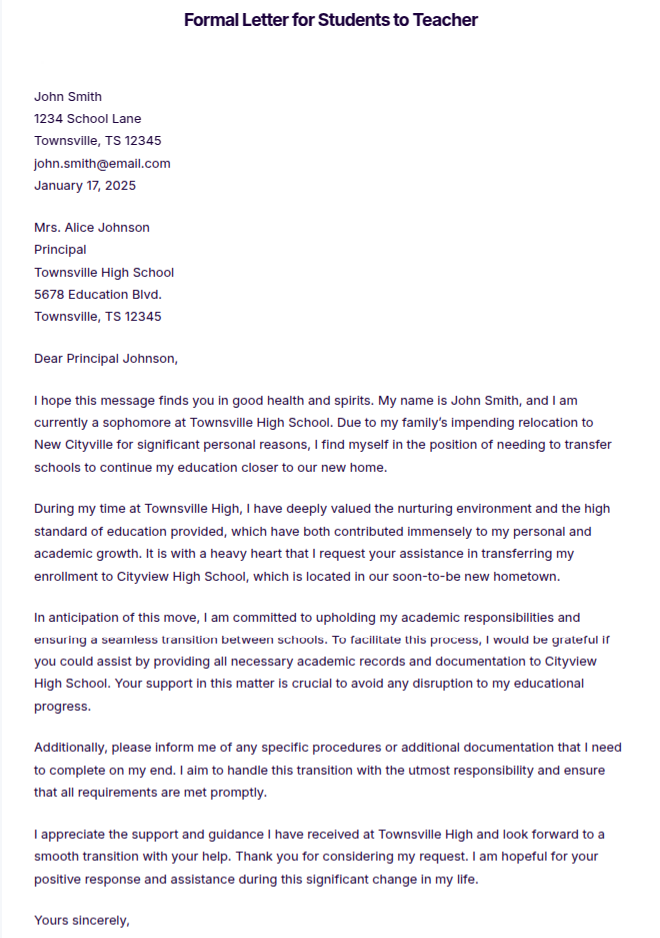
Formal Letter Writing Module
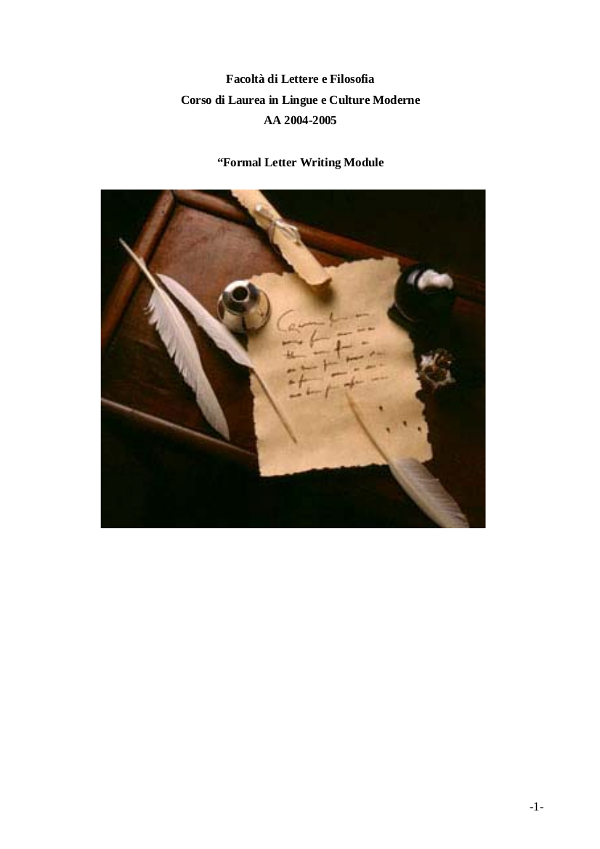
Formal Letter Sample
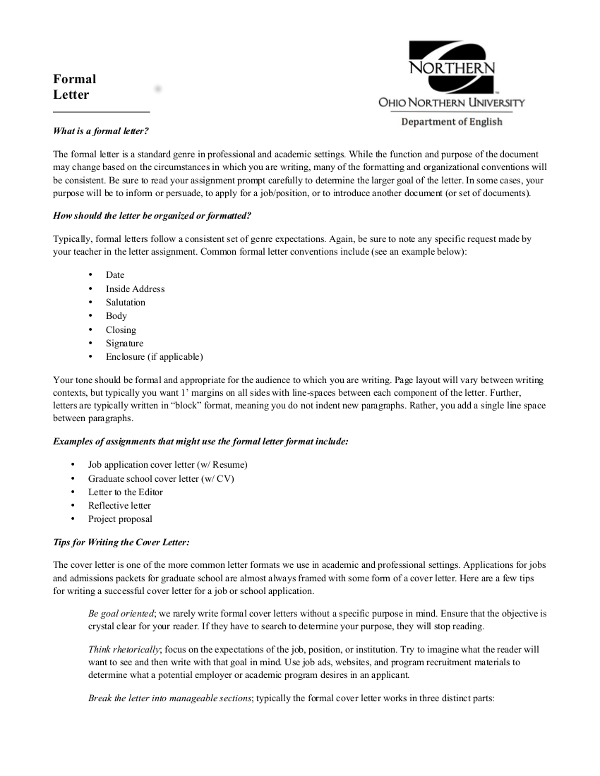
Sample Formal Letter
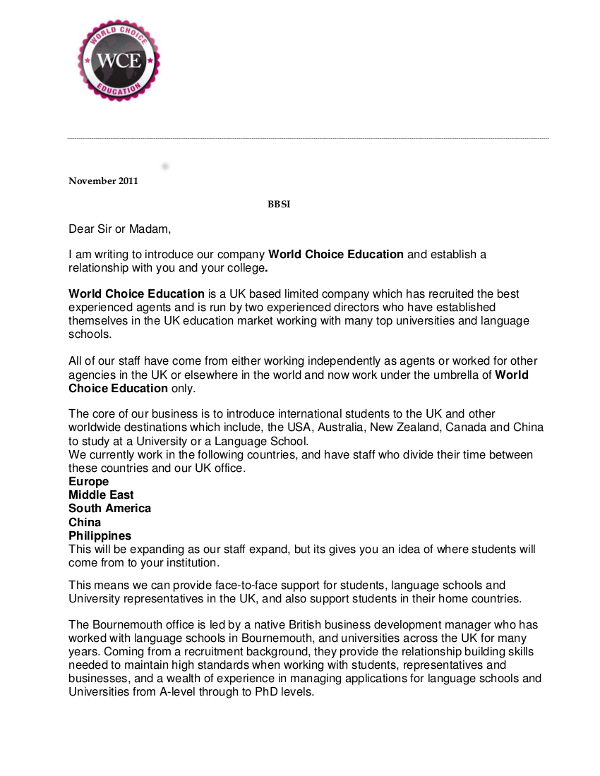
Sample Letter of Application for an Internship
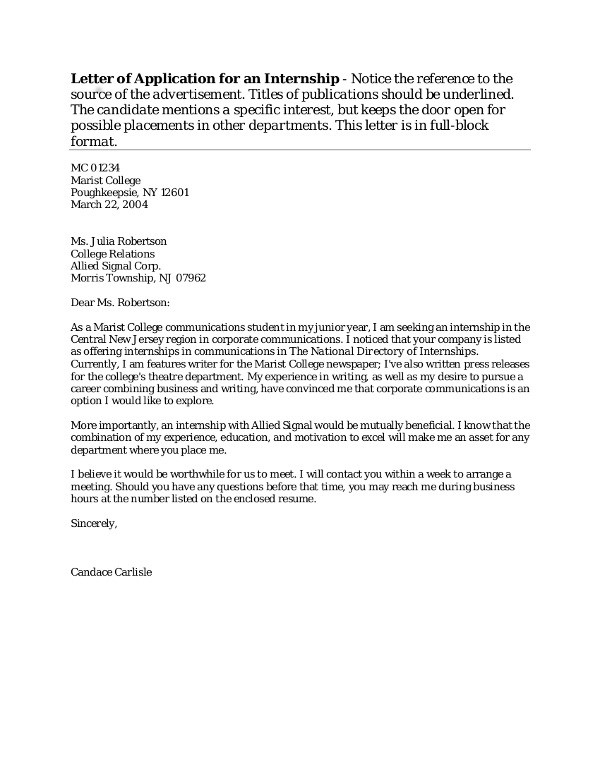
Sample Formal Letter Example
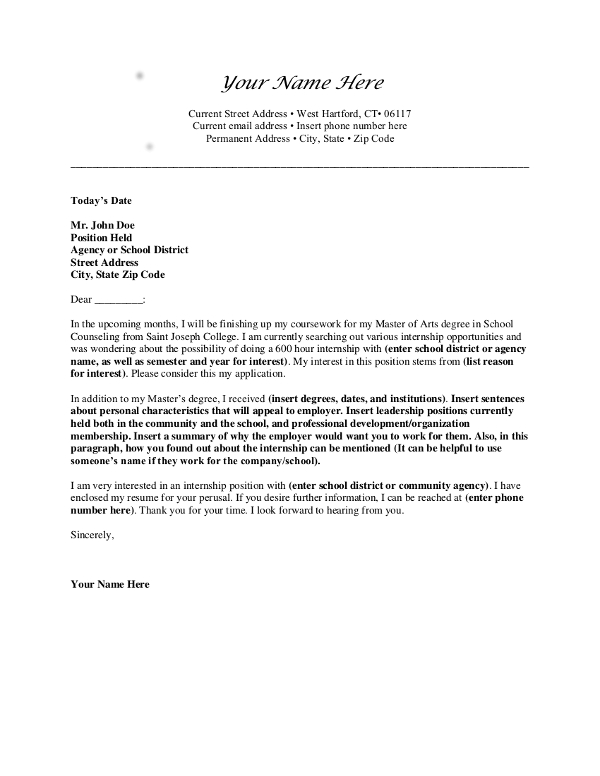
Formal Letter to Request an Internship
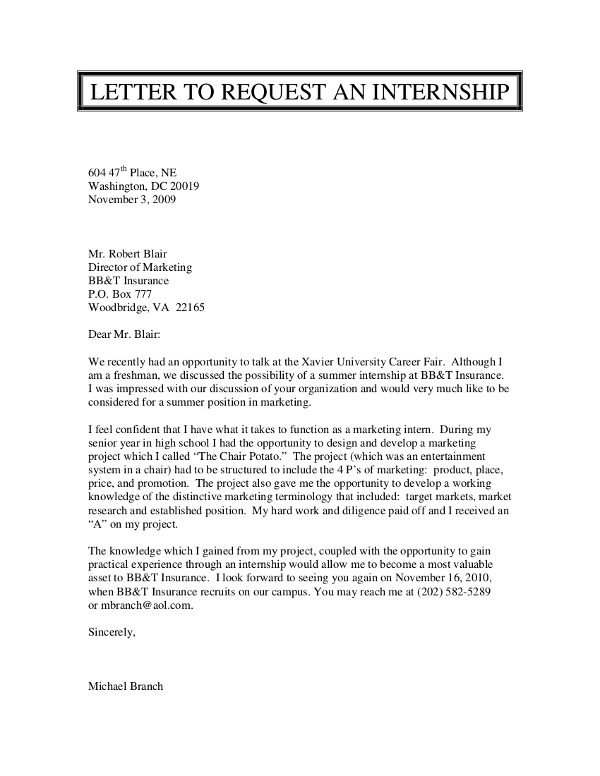
Application Letter for Internship
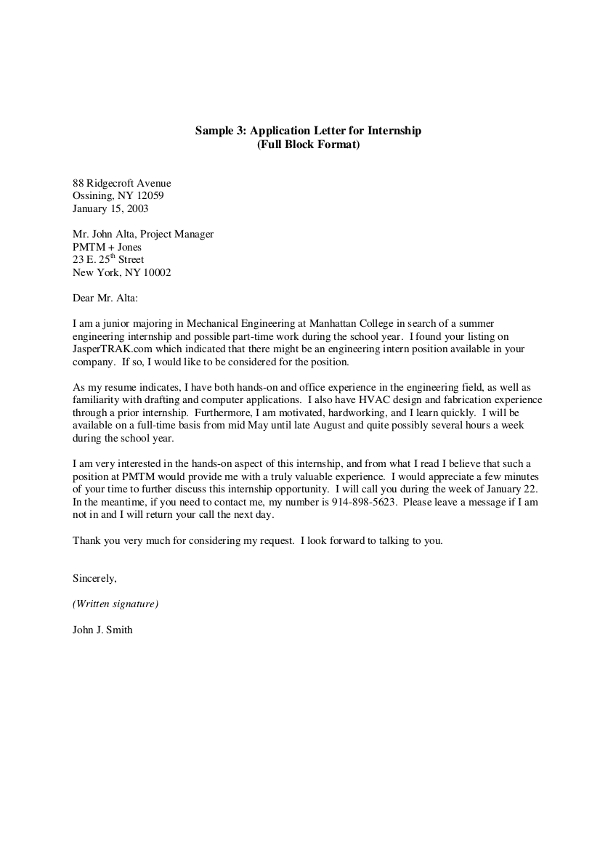
Types of Formal Letters for Students
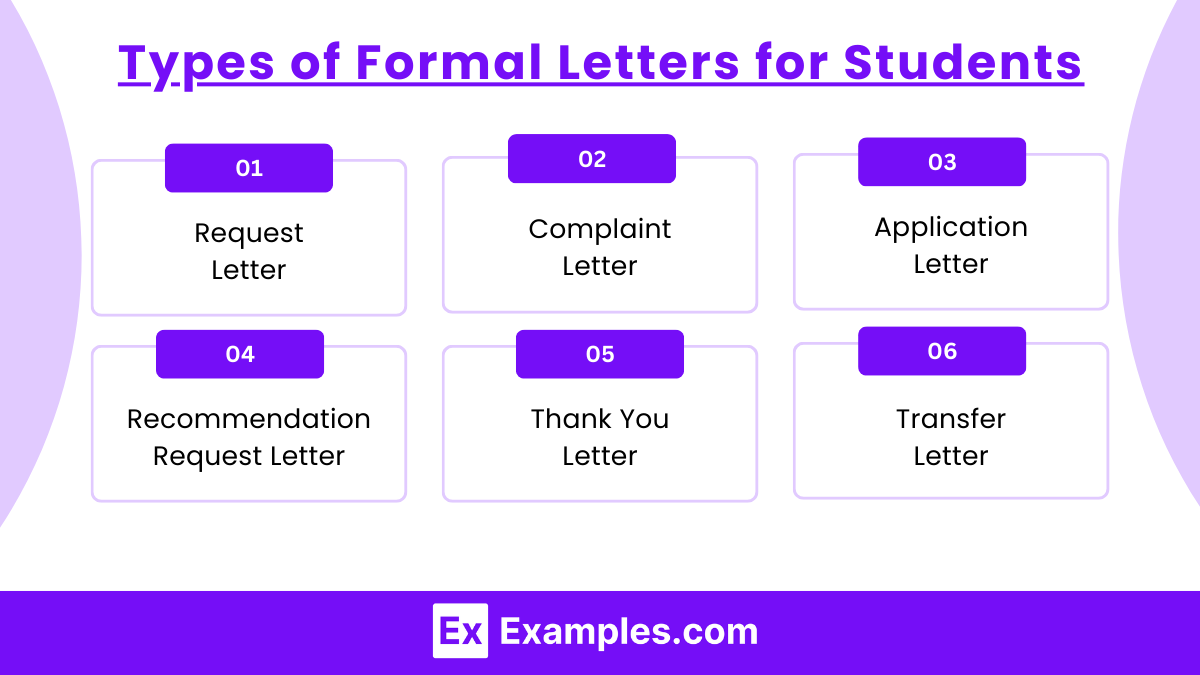
Request Letter
This type of letter is often used to ask for permissions, services, support, or resources from school administration or teachers.
Complaint Letter
Students might write this to address issues of concern regarding academic environments, policies, or conflicts with peers or educators.
Application Letter
Used for applying to universities, scholarships, internships, or special programs that require formal acceptance.
Recommendation Request Letter
Sent to teachers or school counselors when requesting a letter of recommendation for academic or job opportunities.
Thank You Letter
Written to express gratitude towards teachers or school staff for their support, mentorship, or for a specific event.
Transfer Letter
A formal request by a student to transfer to a different school or educational program, typically due to relocation or personal reasons.
How to Write Formal Letters for Students
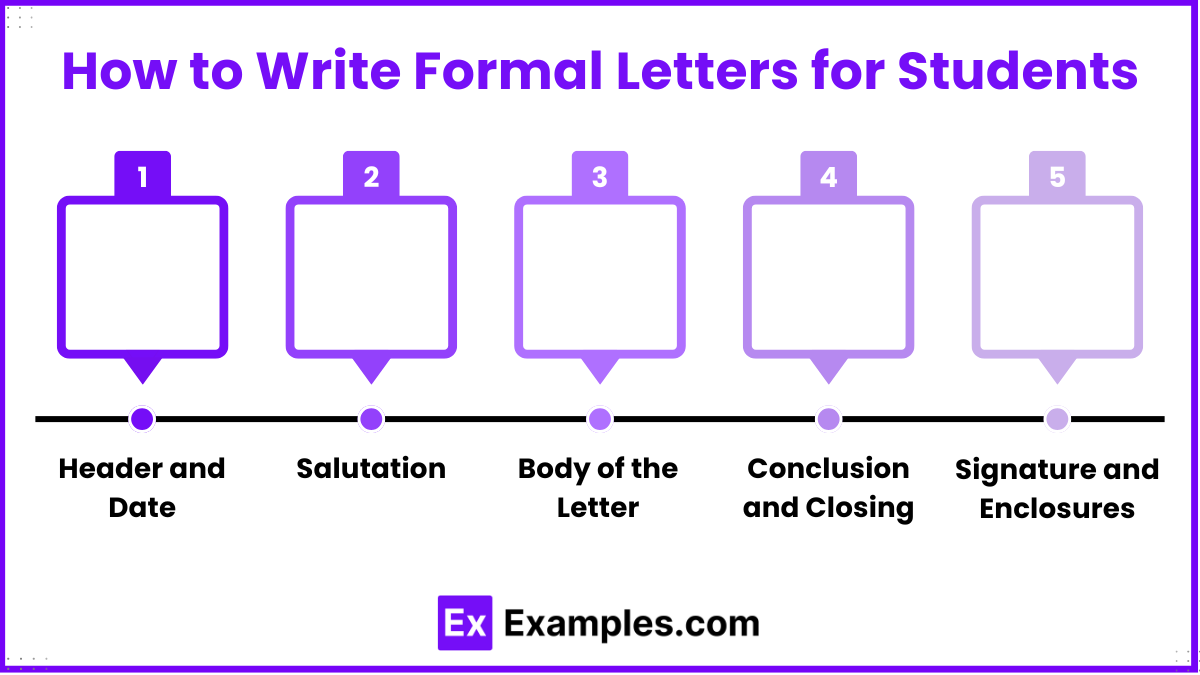
- Header and Date
Start with your address at the top right, followed by the date, and then the recipient’s address on the left. - Salutation
Use a formal greeting like “Dear [Title and Last Name],” to respectfully address the recipient. - Body of the Letter
Clearly state the purpose of your letter in the opening paragraph, then provide detailed information in the following paragraph(s). - Conclusion and Closing
Wrap up with a polite closing statement, reiterating any request or thanking the recipient, followed by a formal sign-off like “Sincerely.” - Signature and Enclosures
Sign your name below the closing and note any enclosures by listing them at the end of the letter.
Tips for Writing a Formal Letter for Students
- Be Concise and Clear: Keep your language simple and direct. Avoid using slang or overly casual phrases. Make sure your main points are easy to understand and that the purpose of your letter is clear from the beginning.
- Use a Professional Tone: Maintain a respectful and formal tone throughout your letter. Even if you are writing to express a complaint or a critical viewpoint, keep your language polite and professional.
- Proofread: Spelling or grammatical errors can undermine the impact of your letter. Always check your work for mistakes and consider having someone else review your letter before sending it.
- Format Properly: Adhere to the standard formal letter format, which includes placing your address at the top, followed by the date, and then the recipient’s address. Use a formal greeting and closure. Keep your paragraphs aligned to the left.
- Customize Your Letter: Tailor your letter to the recipient and the specific situation. Use the recipient’s correct title and name, and make sure the content of your letter directly addresses the issues at hand.
- Be Specific: Include specific details such as dates, names, and relevant events to support your points. This helps the recipient understand your message fully and can make your letter more persuasive.
- State Your Intentions Clearly: If you’re making a request, state it clearly early in the letter. This helps ensure that the purpose of your communication is understood right from the start.
- Sign Off Properly: End your letter with a formal sign-off like “Yours sincerely” or “Respectfully” before your signature. If you are submitting electronically, include a typed signature and your full name.
FAQs
Can students send formal letters via email?
Yes, students can send formal letters via email, following the same guidelines for structure and tone.
What should be included in a student’s formal letter?
Include a clear purpose, supporting details, a polite tone, and a formal closure.
How do students address a formal letter?
Start with the recipient’s name and title, followed by the institution’s name and address.
Why should students learn to write formal letters?
It prepares them for professional interactions and effective communication in their future careers.
How should students sign off on a formal letter?
Close with “Sincerely” or “Respectfully,” followed by their signature and typed name.


